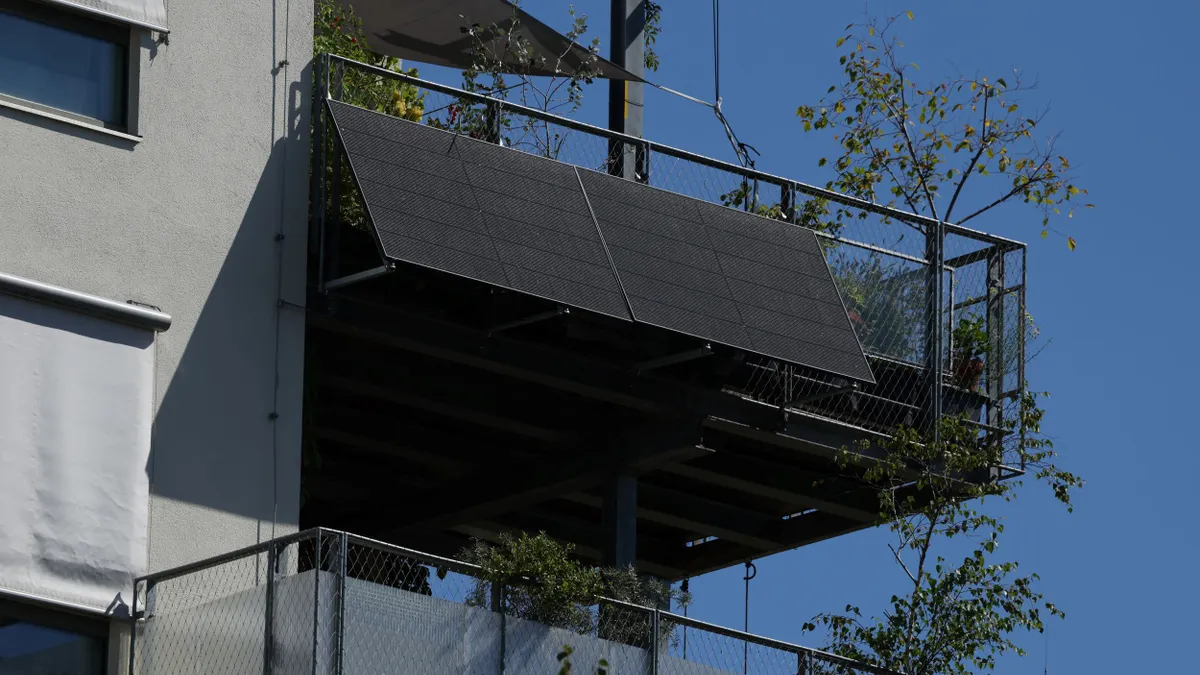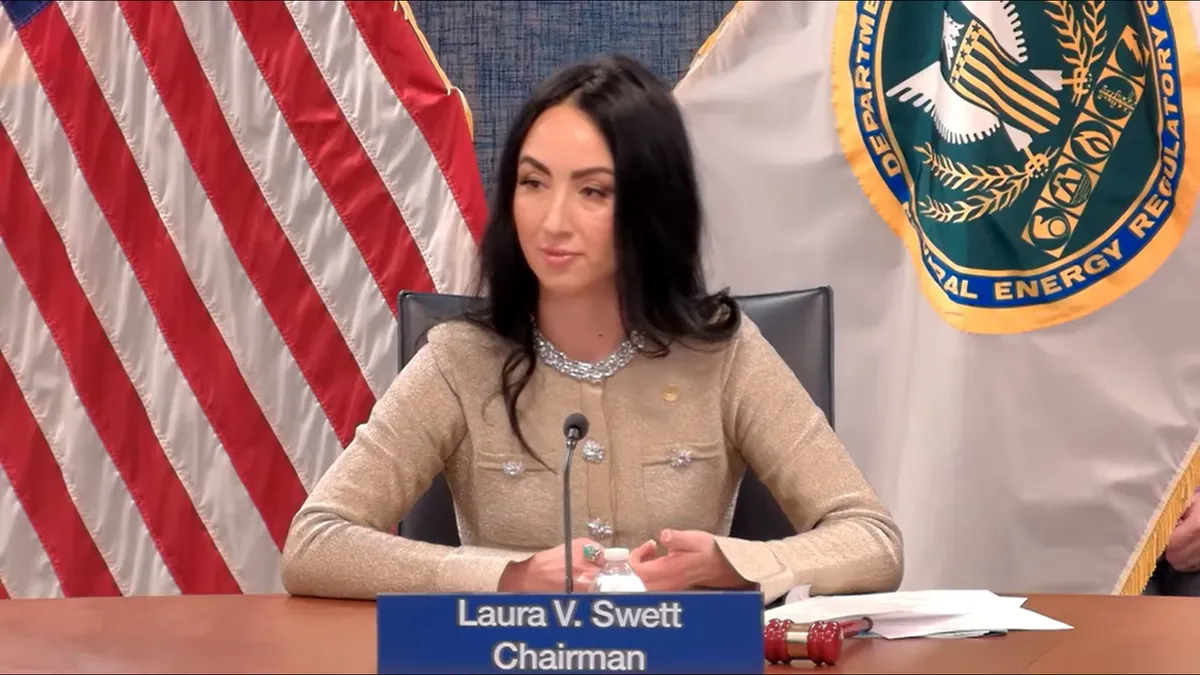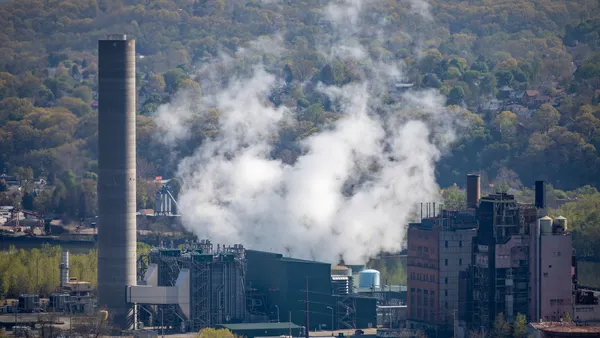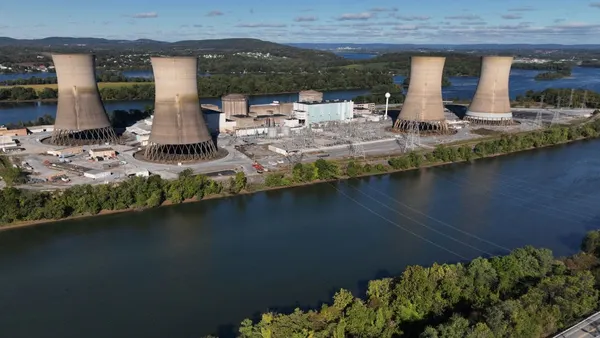Dive Brief:
- Officials at Dominion Resources, Exelon and Duke Energy are all considering submitting licensing applications to the Nuclear Regulatory Commission that would extend the life of some facilities to 80 years – twice the time initially allowed.
- Spurred by greenhouse gas regulations that will require significant emissions reductions, the utilities say carbon-free nuclear power will be essential to meeting the mandates.
- About three quarters of the United States' nuclear fleet has already applied for and received licenses allowing them to operate 60 years.
Dive Insight:
Dominion, Exelon and Duke have all confirmed to CNBC that they are considering submitting applications to nuclear regulators that would allow them to operate the plants 80 years – four decades longer than their initial licenses.
Nuclear currently makes up about 20% of the United States' electricity, and with new greenhouse gas regulations expected in August the emissions-free power could be set to grow its share of generation. While none of the companies offered significant comment, a spokesman for the Electric Power Research Institute told CNBC “If we have any chance to meet the emissions goals, most people don't see how it can be done [without] these plants.”
The idea of extending licenses isn't new, of course. 77 facilities are already being allowed to operate out to 60 years, and the New York Times last year reported that seven nuclear facilities on the east coast were good candidates for relicensing out to 80 years.
Those plants are owned by the same companies CNBC cited. According to the Times, the facilities are located in Pennsylvania, Virginia and South Carolina.
In October the NRC resumed issuing licenses after a two-year hiatus, renewing the operating licenses for Limerick Generating Station Units 1 and 2, located northwest of Philadelphia, and extending their license expiration dates by 20 years, to 2044 and 2049, respectively.














